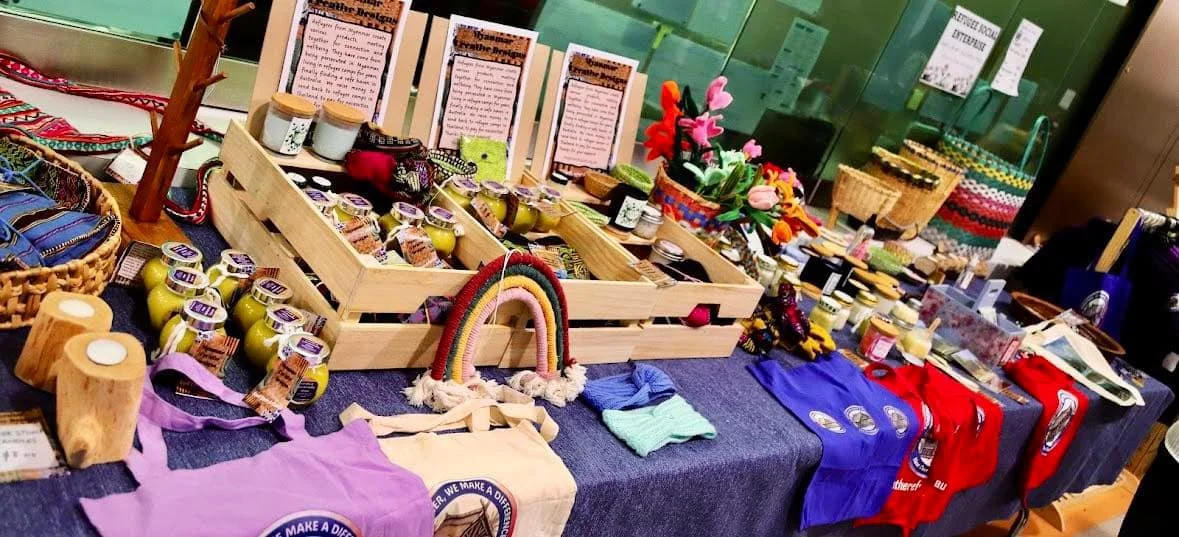Current Initiatives
Help the Myanmar refugees
Raising urgent funds to assist with replacing aid now lost with the recent USAid suspension.
The International Rescue Committee (IRC) has been providing humanitarian aid to refugee camps along the Thailand-Myanmar border for over 30 years. Since the early 1990s, the IRC has been working in these camps, including the Karenni refugee camps, to deliver essential services such as health care, education, protection, and support for livelihoods. Their efforts have focused on alleviating the suffering of refugees who have fled ongoing conflict in Myanmar. However, funding cuts in Jan 2025 including the decision by the U.S. government to freeze foreign aid for 90 days, has significantly impacted the IRC's ability to operate in these areas.
This decision has caused significant challenges for vulnerable communities, including refugee camps along the Thai-Myanmar border. The various health departments including the Karenni Health Department (KnHD) is facing a crisis, as camps that have long been a lifeline for those fleeing Myanmar’s military regime are now severely impacted. The International Rescue Committee (IRC), a key healthcare provider in the region, has been forced to shut down its hospitals and clinics, leaving patients—such as pregnant women, malnourished children, and those with chronic illnesses—without care.
In the refugee camps, the clinics were closed, the water and electricity cut off. Medics, nurses, doctors and interpreters were told to go home.
Current challenges
Key challenges faced by the health services in the refugee camps include: the high cost of referrals and hospital admissions, lack of food and housing support for patients, language barriers requiring interpreters, transportation difficulties to local hospitals, and the ongoing need for medications for conditions like hypertension, TB, HIV, and diabetes. Additionally, any emergency or acute patients must get to the local hospital for assessment, treatment, medications or surgery, and whilst the IRC had been funding this, now the refugees must fund this themselves. The majority of these refugees do not have any money to contribute, and many have died from their illness, injury or acute conditions over the past months, since the funding cuts.
Most staff are now volunteering, with no source of income, and in the Karenni refugee camp, the staff are helping around 100 people still presenting at the clinic each day, with a wide range of medical issues, with barely any supplies and very limited medication, that is never guaranteed.
How we fit into the picture
The Wyndham area in Melbourne is home to a large Karenni and Karen refugee community, people who have fled violence, persecution, and unimaginable hardship in Myanmar. Many spent decades in refugee camps before finally finding safety in Australia. But even in their new home, they face deep struggles—PTSD, depression, anxiety, and the isolation of language barriers. Having lived a life of survival, fear, and loss, they now search for connection, purpose, and healing in a world so different from what they once knew.
At Next Door Artisans, we create a safe space where these refugees can gather, create, and heal. Through traditional weaving, painting, and learning new crafts, they reconnect with their culture and build new skills. But their hearts remain with the families and friends still suffering in the refugee camps. Through our community markets, they sell their handmade crafts and traditional foods to raise urgent funds for those left behind. This campaign is a direct response to the medical crisis unfolding in the camps right now.
Our fundraising efforts will provide critical medical supplies, medicines, and hospital care for refugees in Northern Thailand. We may not have a long-term solution, but we can save one life. We can ensure one person gets the medicine they need, one pregnant mother delivers her baby safely, one child survives an illness that would otherwise take them. It may seem small, but to those facing life or death, it means everything.
Out of our privilege in Australia, even a small contribution can be a lifeline for someone with nowhere else to turn. The proceeds from our market sales and fundraising efforts will go directly to the medical clinics in the refugee camps, helping them through this devastating crisis.
We thank you for your kindness, your compassion, and your willingness to stand with the most vulnerable in their time of greatest need.
Meeting a devoted medical staff member of the Karenni Health Department on our recent mission trip.
Donating goods such as blankets, baby mattresses and clothes, were luxuries that the medical clinic were so grateful for.


